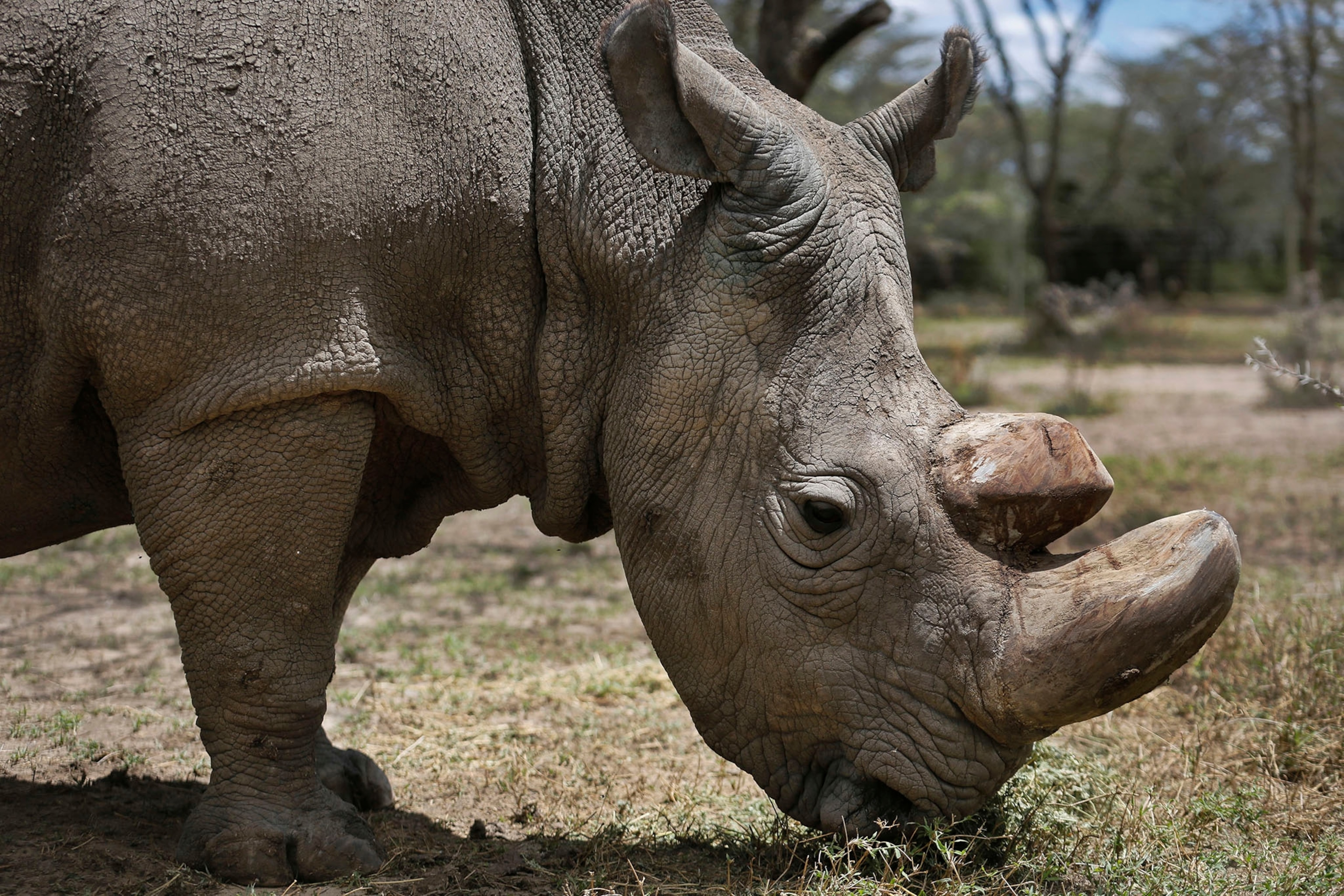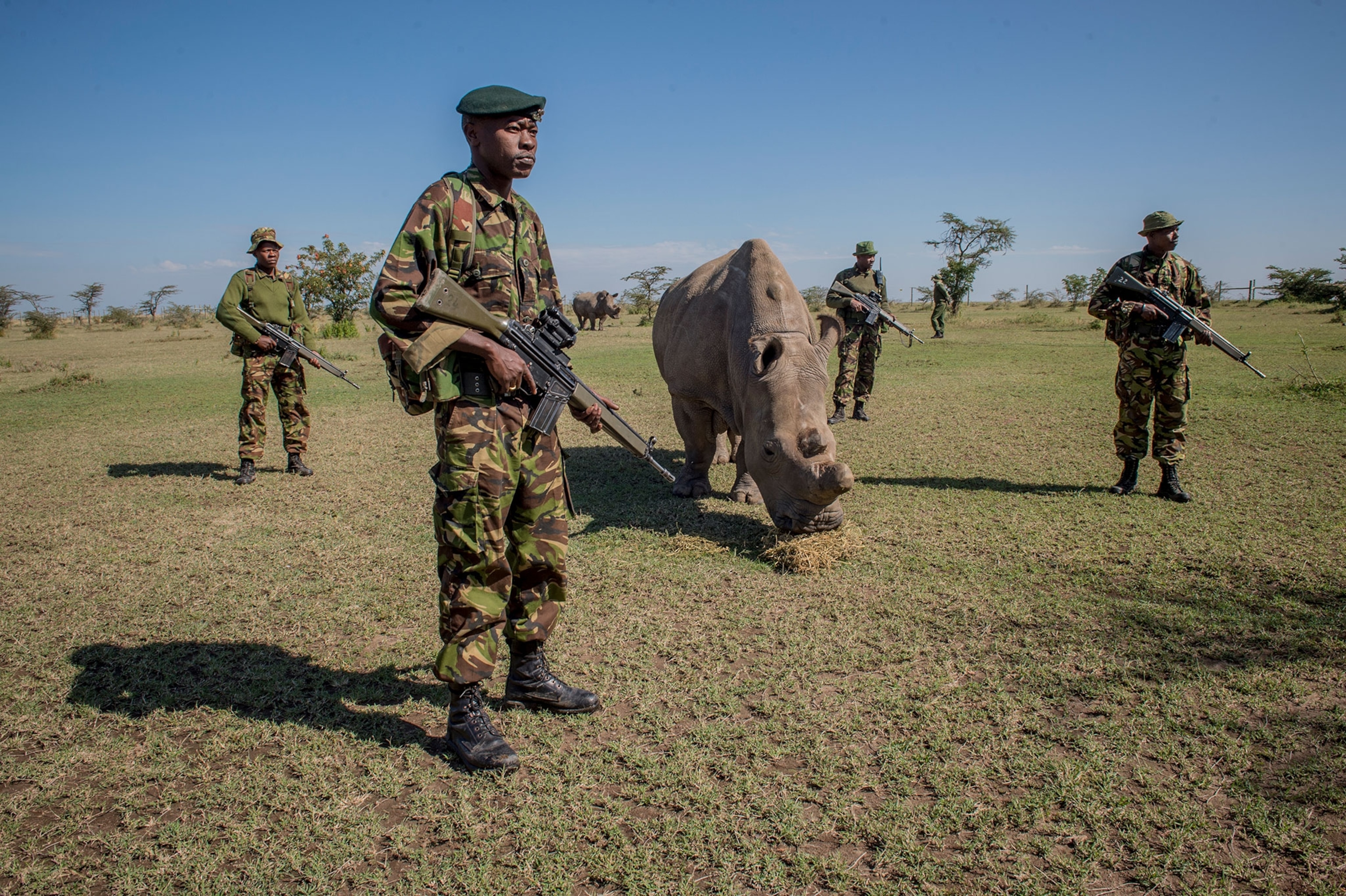
Last Male Northern White Rhino Sudan Remembered in Ceremony
On Saturday, Kenya's Ol Pejeta Conservancy held a memorial service for the famous animal, complete with his favorite food—carrots.
The world mourned after Sudan, the last male northern white rhinoceros, died on March 20.
But perhaps few were as personally struck as the caretakers who had the crucial job of protecting his life.
A team of veterinarians, conservationists, and armed guards watched over the critically endangered animal at the Ol Pejeta Conservancy in Kenya.
On Saturday morning, the conservancy held a memorial service for Sudan, whose death leaves just two of his kind remaining on Earth.
The ceremony, a tribute to his life, began with the Kenyan national anthem, a poem, and a minute of silence. (See heart-wrenching photos of rhinos fighting to survive.)
"Fare thee well Sudan," the conservancy posted on its Facebook page. "You have done your work to highlight the plight of rhino species across the world; now the onus is on us to ensure that rhino populations thrive across our planet."
One of the speakers was James Mwenda, who was among Sudan's keepers and spoke about the rhino's life, urging the world not to let his death be in vain. A carrot—the rhino's favorite food—was placed on a ceremonial plaque.
The guest of honor, Cabinet Secretary for Wildlife and Tourism Najib Balala, also spoke at the event.
Poaching Pandemic
Sudan's health began failing early this year. In early March, he developed an infection on his back leg that, combined with age-related complications, proved too much for the rhino to overcome. The conservancy euthanized him after realizing he was barely able to stand.
While Sudan's death paints a grim picture, the conservancy doesn't want to lose sight of the conservation issues Sudan brought to the forefront.
Rhino horns, used in some Chinese medicines and crafts, are some of the most lucrative animal parts o the illegal wildlife market. (Read National Geographic's 2016 investigation of the deadly trade.)
Just over 29,000 rhinos are left on Earth, but before the 19th century, they numbered in the hundreds of thousands. Rhino poaching has dramatically increased over the past decade.

"It’s a war," said Xolani Nicholus Funda, chief ranger at Kruger National Park, said in the 2016 article. "That’s our frustration. The rhino war—it’s like drugs."
Shining a Spotlight
Last April, Sudan famously helped spread awareness about rhino conservation when his keepers created a profile for him on a dating app.
Seemingly lighthearted, the profile was intended to raise money to fund artificial insemination research.
Sudan's daughter and granddaughter are the only two remaining northern white rhinos. One is infertile and the other is not able to reproduce on her own. The genetic material of several northern white rhinos, including Sudan's, has been stored away.
Scientists hope to one day use in vitro fertilization to breed another northern white rhino. They're also considering making a hybrid with the genetically similar southern white rhino.